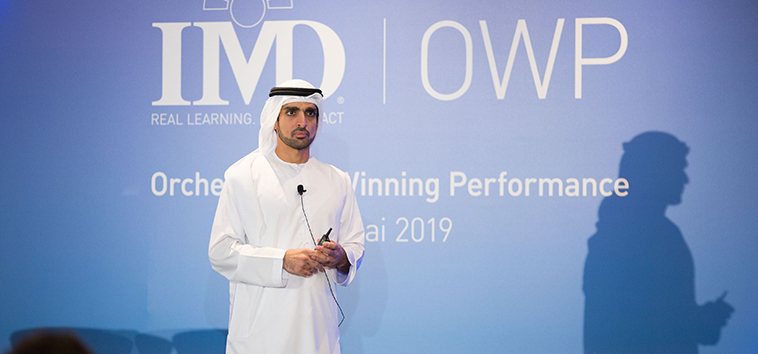It was July 2014 that the President of the UAE, Sheikh Khalifa bin Zayed Al Nahyan, announced the country’s ambitious plans for space exploration.
A probe, called Hope, is earmarked to set off from Earth in July 2020 and reach the surface of Mars by 2021, the fiftieth anniversary of the UAE’s foundation.
While it was announced five years ago, the mission actually followed nine years of preparation, said Omran Sharaf, Director of the Emirates Mars Mission, during his keynote speech on day four of Orchestrating Winning Performance in Dubai.
Blast off for science and tech
“His Highness Sheikh Mohammed bin Rashid Al Maktoum, the Vice President and Prime Minister wanted to build something that would build and support the science and technology sector,” explained Sharaf.
Why this particular sector?
The emirate of Dubai and the wider UAE, at the time, was in a constant and agile state of development and working towards becoming a post-oil economy, explained Sharaf.
“To do that, you need to be knowledge-based.” And to survive, a knowledge-based economy needs to be innovative and creative. That can only be achieved through science and technology.
The mission to Mars was born out of the desire to learn from mistakes in the region’s past, he added. Eight-hundred years ago the Middle East was a symbol of tolerance and of innovation.
“The moment we stopped being that, we started going backwards,” he said.
This, says Sharaf, inspired Sheikh Mohammed to turn to space exploration – with a chief goal to send a message of inspiration to young people in the Arab World.
“At the time, a lot of them were leaving us or unfortunately investing their skills and re-energize in the wrong groups.”
Skills in science and technology, believed Sheikh Mohammed, would inspire and energies a new generation.
“You’re talking about a region that has more than 100 million youth in it with a lot of potential and a lot of skill. His Highness wanted the Mars mission to be the catalyst for impact.”
Giving back to humanity
A key criterion was that the UAE would build its own spacecraft. “He (Sheikh Mohammed) said ‘we are going to build it, we are not going to buy it’.”
The project was not about starting from scratch, explained Sharaf, it was about acknowledging lessons learned from other space missions and building something new.
“The science we are going to do is going to be novel, we need to give back to humanity,” said Sharaf, reflecting on Sheikh Mohammed’s goals. “And we will share it with everyone, with the rest of the world openly.”
It was, he added, about being creative and innovative while being efficient and effective and approaching it “with an Emirati way of things”.
Ultimately, the main Mission to Mars is not about reaching the Red Planet, but one that carries a much bigger goal, said Sharaf, who also reflected on the launch of the UAE-built KhalifaSat satellite last year and how the UAE sent its first astronaut, Hazza Al Mansoori, into space earlier in 2019.
That goal is about the future of the country, about building a sustainable ecosystem in the country for the people of the UAE and the people of the region.
The 2020 mission will be the Arab world’s first mission to outer space and will give the world a better understanding of Mars, which in turn will give a better understanding of the universe. This will serve all humanity, he added.
Beyond borders
Sharaf believes the mission has the potential to motivate Arab youth beyond the UAE’s borders, demonstrating that the region is playing its role in forging a more prosperous future.
Since the mission was announced, a shift has emerged among the nation’s young people, he said.
“We noticed the language of our youth change. Instead of building cars they talk of building rockets. From wanting to fly they wanted to become an astronaut.”
The exploration project also shows a focus on the next generation, he added. The average age of the team behind the Mission to Mars is 28, while 40% are women.
The mission shows the importance of the vision of great leadership, Sharaf said. It highlights the importance of working with others, of thinking outside your comfort zone and of having to think differently and be creative.
“You cannot cut-and-paste, you have to be unique. And you have to think outside the box to do that.”



